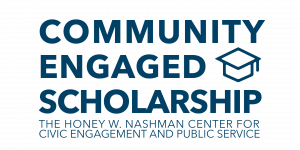 In HSSJ 2170, Professor Linda-Jeanne Mack leads a dynamic Community Engaged course focused on cultivating professional communication skills within the human services field. Through this course, students gain practical experience in engaging professionally with individuals and groups, preparing them for impactful interactions within diverse human service settings. The primary goal of HSSJ 2170 is to help students understand personal and cultural bias and improve their listening skills. Professor Mack emphasizes the importance of effective communication in fostering positive relationships and delivering quality care and support to individuals and communities in need.
In HSSJ 2170, Professor Linda-Jeanne Mack leads a dynamic Community Engaged course focused on cultivating professional communication skills within the human services field. Through this course, students gain practical experience in engaging professionally with individuals and groups, preparing them for impactful interactions within diverse human service settings. The primary goal of HSSJ 2170 is to help students understand personal and cultural bias and improve their listening skills. Professor Mack emphasizes the importance of effective communication in fostering positive relationships and delivering quality care and support to individuals and communities in need.
Professor Mack's course extends beyond theoretical knowledge, encouraging students to reflect on the ethical dimensions of professional communication within the human services field. This reflective approach fosters a deeper understanding of the responsibilities and ethical considerations inherent in serving vulnerable populations. Moreover, HSSJ 2170 emphasizes the value of cultural competence and sensitivity in communication. Students learn to recognize and appreciate diverse perspectives, which is crucial for building trust and rapport in cross-cultural interactions within human services settings. This course prepares students to navigate the complexities of the field with confidence and empathy, positioning them for success in their future roles as compassionate and effective human service professionals.

